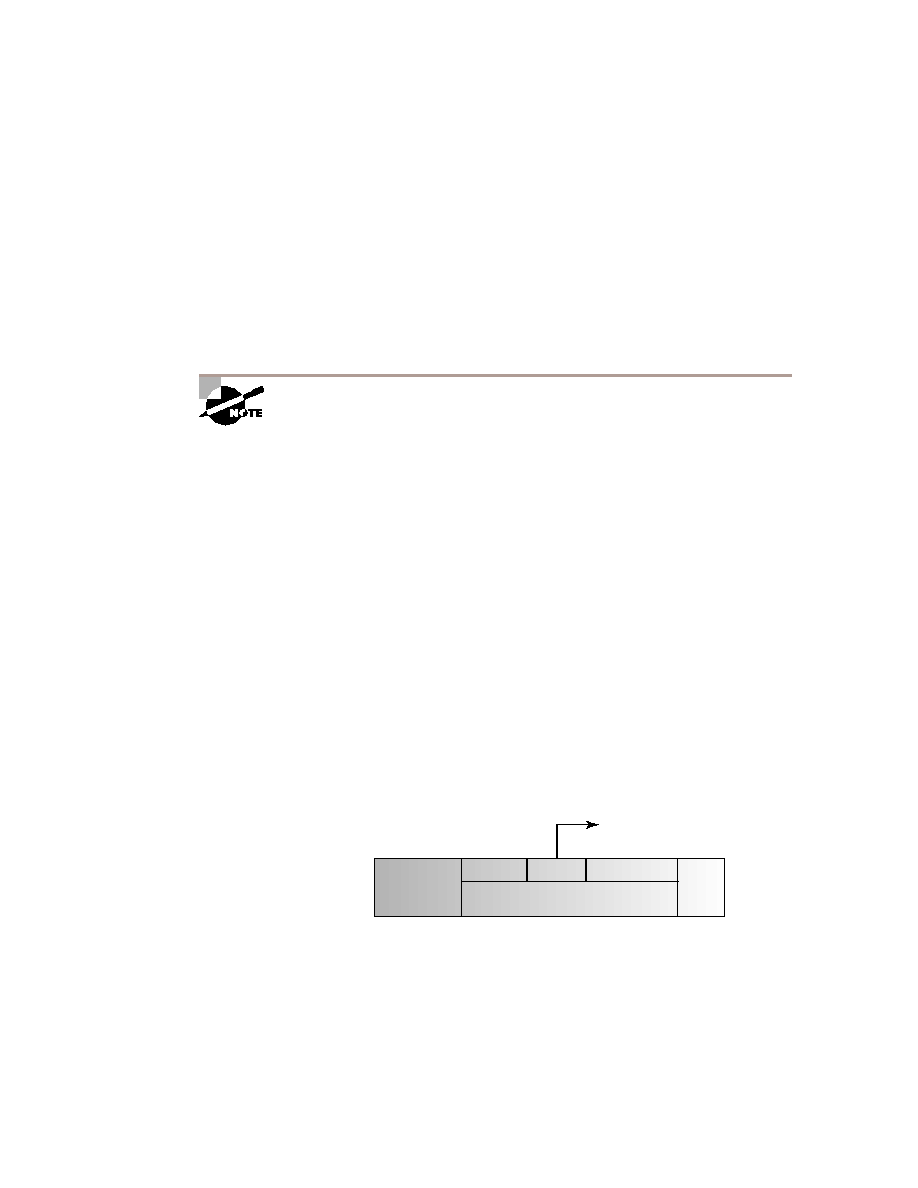
Enhanced Interior Gateway Routing Protocol
219
EIGRP uses the same metrics as IGRP. Those metrics are:
Bandwidth
Delay
Reliability
Load
Just as with IGRP, there is no specific calculation for the maximum transmis-
sion unit (MTU) as a metric. The MTU, however, is used as a tiebreaker for
equal metric paths.
Bandwidth and delay are the two metrics used by default. The other met-
rics can be configured manually. When you configure reliability, load and
MTU can cause the topology table to be calculated more often.
Updates and Changes
EIGRP also has link-state properties. One of these properties is that it prop-
agates only changes in the routing table instead of sending an entire new
routing table to its neighbors. EIGRP relies on IP to deliver updates to its
neighbors, as shown in a breakdown of an EIGRP packet in Figure 6.2.
When changes occur in the network, a regular distance-vector protocol will
send the entire routing table to neighbors. By avoiding sending the entire
routing table, less bandwidth is consumed. Neighboring routers don't have
to re-initialize the entire routing table; all the routers need to do is insert
the new route changes. This is one of the big advantages that EIGRP has
over IGRP.
F I G U R E 6 . 2
An IP frame showing the protocol type to be EIGRP
Frame Header
Frame Payload
IP Header
Protocol
Packet Paycash
88 = EIGRP
CRC
Copyright ©2001 SYBEX , Inc., Alameda, CA
www.sybex.com
